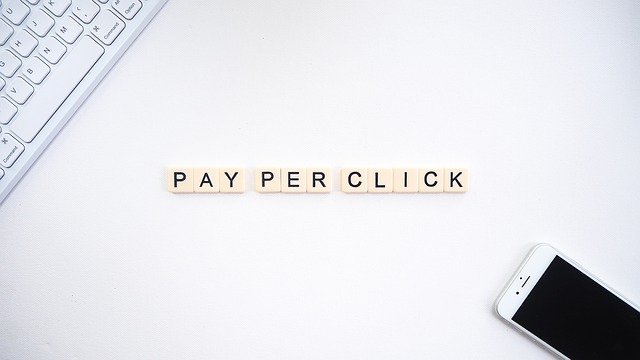Those who have experience in PPC or pay-per-click advertising understand how advantageous this strategy is. Apart from its accessibility and quick entry, the results that it produces are as easy to measure as they are to track, after all. More importantly, it can work well with different marketing platforms and provide a wealth of useful information to boot. It’s for these reasons that it remains a popular part of any marketing strategy and why companies continue to invest in professional PPC Seattle firms, especially eCommerce businesses. And in this article, we’ll talk about what eCommerce PPC is and how it can position an organization atop its industry, poised to succeed.

PPC advertising for eCommerce: What is it?
As its name suggests, pay-per-click is a method of marketing where the business pays the publisher of the ad for every click that the chosen advertisement gets. There are several digital platforms that can be used to host, with the two most commonly used channels being search engines and social media websites. And when used in conjunction with eCommerce, it can generate exposure for a business and drive up its sales because it specifically targets the right consumers and shoppers who are ready to make a purchase.
How does it work?
Leveraging PPC advertising for eCommerce is a lot simpler than it appears. And aside from securing the services of a capable PPC Seattle agency, there are a few steps that need to be taken to ensure the successful launch of a campaign.
- Creating the ad. The process of ad creation is usually uncomplicated for most campaigns. The size of the advertisements – the sizes of which are generally determined by the platform of choice – often includes catchy headlines, a few lines for the ad copy, and in certain cases, images.
- Selecting relevant keywords. Keyword selection might be one of the oldest digital marketing strategies, but it still remains as relevant and important today as it ever did in the past. And when it comes to pay-per-click models, it’s imperative to choose the right words to ensure that the ads are triggered. For example, an eCommerce business that deals with camping gear might pick phrases like best sleeping bags for cold weather or best tents to reel in buyers who are looking for an outdoor experience.
- Bidding. Once the keywords are chosen, and the ads are created, the next step for the business is to determine how much it can pay to display the advertisement. The bids can vary depending on just how competitive the selected phrases are. For profitable and high-volume keywords, the chances are that a company will pay more, and vice-versa. And it’s because of this that researching keywords is critical to the success of the campaign.
- Hire PPC experts. As simple as PPC might be on paper; it can be complicated in practice. For an eCommerce business to reap the benefits of this form of advertising, it needs to have the services of knowledgeable and experienced specialists at its disposal. And hiring a PPC firm can go a long way in helping a company achieve its goals.
Why use PPC for eCommerce?
There are many reasons why PPC is an excellent marketing model for a number of reasons. And listed below are some of its most notable advantages:
- It fits with the business model of eCommerce. Anyone who is familiar with eCommerce knows that this type of model is data-driven. In fact, it can be easily represented in numbers. And the pay-per-click advertising method works particularly well with this structure since the entirety of the campaign can be monitored exhaustively to the very last detail. More importantly, the process in the optimization of eCommerce businesses to achieve a better rate of conversion is not unlike that of enhancing a PPC strategy to receive more clicks, meaning that it’ll come much more naturally to the owners than they would have with other marketing techniques.
- It allows a business to set its own budget. Another reason why pay-per-click advertising is an outstanding choice is the fact that the campaigns can be scaled according to the needs and resources of a business. Unlike more traditional marketing techniques that usually require a considerable commitment of financial resources upfront, an organization doesn’t necessarily need to spend a small fortune to attain the desired outcome. In actuality, it’s the opposite, and you’ll only have to pay once the results start showing.
- It offers precise targeting. One of the main reasons why PPC can be advantageous for an eCommerce business is its precision in targeting the intended audience with the advertising campaign. To put it simply, this method allows companies not only to choose what they’re marketing. But more importantly, who they’re marketing to. One good example is an online clothing store. Certain outfits may fit specific demographics, and the pay-per-click method provides businesses with the opportunity to create ads solely for specific lines of clothing. And, in turn, target the right users who are most likely to make a purchase.
- It gives access to relevant data. They say that knowledge is power. And in marketing, having the right information is key for a successful campaign. When compared to other digital marketing strategies, PPC offers a lot more performance-related information and relevant data that can be leveraged to create much more effective advertising techniques. Best of all, efficacy of the methods used can be measured, allowing the business to determine its returns much more accurately than others.
Conclusion
Pay-per-click advertising continues to provide its dependability and reliability as a marketing channel for businesses that include but aren’t necessarily limited to, eCommerce stores. It provides companies of any size the ability to reach out to their target audience, increase inbound website traffic, and elevate their conversion rates. And with all of the advantages that it offers, there’s little risk in incorporating PPC into an existing advertising campaign with the help of a reputable PPC Seattle agency to help a company create the awareness and exposure that it needs to increase its sales.

